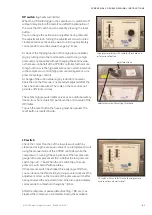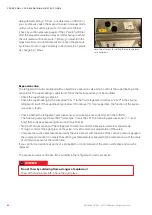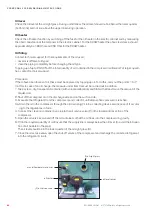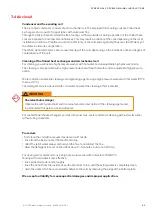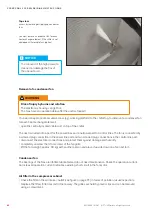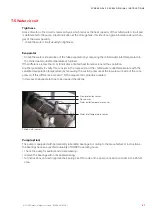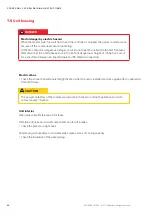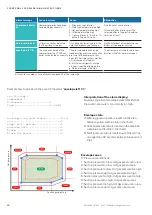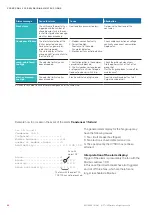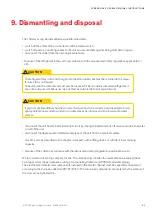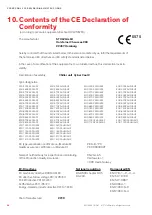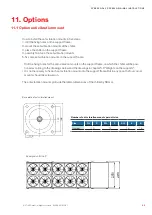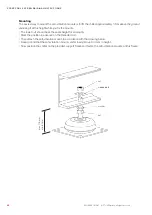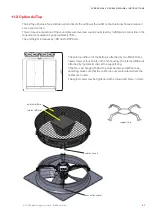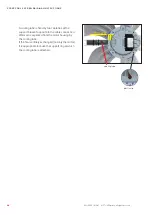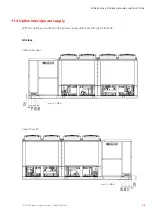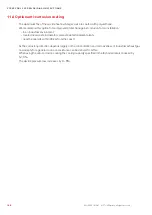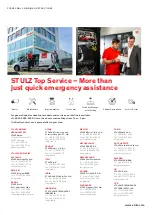
93
© STULZ GmbH – all rights reserved EN/09.2019/G41
cybercool 2 screw original insTrUcTions
The chiller may only be dismantled by qualified specialists.
• switch off the chiller at the controller and at the master switch.
• switch off power conducting cables to the unit and secure them against being switched on again.
• disconnect the chiller from the de-energized network.
• Dispose of the refrigerant in the unit in accordance with the disposal and safety regulations applicable on
site.
CAUTIOn
The refrigerant may not be discharged into the atmosphere, but must be returned to the manu
-
facturer, if it is not reused.
The ester oil in the compressor must also be disposed it. As it contains dissolved refrigerant, it
can not be disposed of like usual oils, but must be returned to the oil manufacturer.
CAUTIOn
If glycol or similar additives had been used, this liquid has to be collected and disposed of in an
appropriate manner and may under no circumstances be introduced in the local waste water
system.
• disconnect the unit from the external water circuit by closing the external shut-off valves and drain the water
circuit of the unit.
• disconnect the depressurized chilled water pipes of the unit from the external system.
• move the unit, as described in the chapter „transport“, with a lifting device of sufficient load-carrying
capacity.
• dispose of the chiller in accordance with the disposal and safety regulations applicable on site.
We recommend a recycling company for this. The unit basically contains the raw materials aluminium (heat
exchanger coils), copper (pipelines, wiring), iron (panelling, frames) and P235 steel (water piping).
The electrical and electronical components installed in the electric cabinet must be separately disposed of
according to the European directive 2012/19/EU. The concerned components are marked by the symbol of
the crossed-out wheeled bin.
9. dismantling and disposal



